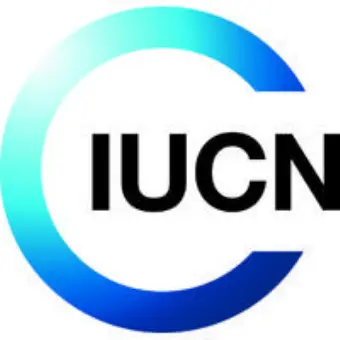Regional Gender, Environmental and Social Safeguards Specialist

IUCN
This job is no longer accepting applications
See open jobs at IUCN.See open jobs similar to "Regional Gender, Environmental and Social Safeguards Specialist" Shortlist.As the regional specialist for the application of the ESMS, this position is responsible for ensuring that ESMS procedures, standards and principles are applied on the regional project portfolio. This includes preparing ESMS screening reports for projects, advising proponents on safeguard-related improvements of project design, support the preparation of ESIAs and safeguard documents and preparing ESMS clearance. It further involves providing supervision during project implementation to guarantee that ESMS requirements are complied. Where safeguard related grievance is raised, he/she will be instrumental in solving the matter proactively. More specifically, the GESS specialist will lead the sustainability framework for the active projects, responsible for implementing the crucial cross cutting functions of the project ensuring that all activities of the project are socially and environmentally sustainable and comply with the multilateral funds and IUCN Policies and Standards related to Gender, Environmental and Social Safeguards, and Indigenous People Frameworks.
He/she will also build ESMS capacity in the region to enhance ESMS compliant and Gender transformative project design and ensure effective implementation of the risk management strategies. This involves coaching and training of regional staff, project proponents and project managers (including external to IUCN) as well as supporting recruitment, onboarding and training of project environmental and social safeguards and inclusion officers.
This position will also monitor the application of safeguard tools in the region, distil lessons learned and support the global ESMS Coordinator in system development and refinements to increase the system’s efficiency.
The GEES specialist will provide programmatic and technical support to the project team (technical and MEL), partner organizations partners, private sector entities, and other stakeholders on effective integration of cross cutting (women, youth and environment) considerations beyond compliance, by identifying opportunities to add value to the system changes, transformation and paradigm shifts that lead to long term impact and sustainability of the Eastern Province’s landscapes and communities.
This position will report to the Regional Programme Delivery Manager, Multilateral Finance but will be guided technically by the Regional Programme Coordinator and Global ESMS Coordinator.
SPECIFIC DUTIES;
Regional portfolio ESMS application;
Application of ESMS procedures on the regional project portfolio, specifically:
Environmental and social due diligence at project design stage
Screen projects on environmental and social impacts, define risk category, identify necessary impact studies and safeguard tools/plans;
Advise proponents on stakeholder engagement during project design and implementation phase;
Support proponents in contracting experts for environmental and social assessments;
Appraise the quality of final ESIA reports and environmental and social management plans (ESMP) and other safeguard tools;
Ensure appropriate budgeting for ESMS activities;
Conduct final compliance check and prepare ESMS clearance of projects.
ESMS support during project implementation;
Provide ESMS training for executing agency (EA) and relevant partners at project inception;
Appraise any ESMS deliverables that are due in the inception phase;
Support the EA in monitoring safeguard tools and reporting progress on implementation and compliance with all ESMS requirements;
Contribute to annual project implementation reviews/ supervision missions and to the development of the ESMS specific aspects of the mid-term review and terminal review;
Manage ESMS project data including entries to the Project Portal to assure maintenance of ESMS records.
Grievance management and serious incident reporting;
Support the EA in setting-up a project-level grievance mechanism;
Register and report incoming grievances, monitor progress solving grievances and, where applicable, work with EA to solve grievances;
Ensure timely reporting of serious incidents and implementation of corrective actions.
Build ESMS and Gender capacity in the region;
To enhance ESMS-compliant and Gender-sensitive project design and ensure effective implementation of the risk management strategies, it is essential to strengthen regional capacity in those crosscutting functions. This involves:
Train and coach regional staff and project proponents on ESMS and gender related procedures, principles and standards to ensure not only consistent application but also pro-active integration of ESMS and gender principles into project design;
Support the global ESMS Coordinator and gender specialists in the development of training materials and delivery of training sessions for ESMS and Gender;
Build the capacity of projects staff, implementing partner organizations, and other stakeholders to effectively integrate GAP into their workplans. Contribute to the recruitment, hiring and on-boarding of new project ESMS and gender officers in the region.
ESMS development, refinement and learning;
Supporting the global ESMS Coordinator in system development, refinements and learning. This involves:
Monitor ESMS implementation in the region to capture lessons learned and feed-back from the EA and project stakeholders.
Contribute to enhancement of the system (including development of tools, templates, guidance notes etc) to increase effectiveness of ESMS application;
Generate lessons on the ESMS application identifying good practices and synthesising these practices for dissemination.
Development, refinement and learning of Gender-in-conservation concepts and applications;
Support the Regional Programme Delivery Manager to ensure that principles of gender equality and youth engagement in nature and natural resources conservation are integrated into all aspects of project cycle management, including in concept/system development, refinements and learning. This involves:
Monitor Gender Action Plan implementation in the region’s project portfolio, and support the MEL Officers to track, analyse and report against Gender and Youth disaggregated data appropriately within each project output in quarterly, semestrial and annual reports, as well as to capture lessons learned and feed-back from the EA and project stakeholders;
Develop and propose evidence-based policy and programmatic interventions to reduce gender disparities, particularly focusing on enhancing women’s agency in nature and natural resource conservation efforts,
Contribute to enhancement of the system (including development of tools, templates, guidance notes etc) to increase effectiveness of application of gender principles;
Generate lessons on the ESMS application identifying good practices and synthesising these practices for dissemination.
This job is no longer accepting applications
See open jobs at IUCN.See open jobs similar to "Regional Gender, Environmental and Social Safeguards Specialist" Shortlist.




